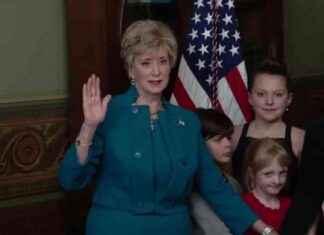The government of Joe Biden has decided to relax the policy towards Cuba and Venezuela, in the first case to “improve the lives of its citizens” and in the second to favor dialogue between Caracas and the opposition. These are openings of a tactical nature that avoid political concessions.
With regard to Cuba, the State Department announced on Monday night the decision to resume flights to locations on the island that are not Havana –the only destination since 2019–; reinstate educational and professional group travel; increase the pace of granting visas to recover the quota of 20,000 per year; facilitate the family reunification of Cubans in the US; eliminate the limit of 1,000 dollars in remittances per quarter, and “increase support for independent entrepreneurs” on the island.
The package of measures reverses a large part of the restrictions with which Donald Trump overturned the concessions and advances promoted by Barack Obama, between the end of 2014 and 2015, in his agreements with then-President Raúl Castro for the normalization of diplomatic relations and the thaw in the dialogue between Washington and Havana.
But among Biden’s decisions there are no nods to the government of Miguel Díaz-Canel. Nothing to remove Cuba from the list of countries that sponsor terrorism, in which Trump reintegrated the country after its exclusion from it by Obama in 2015. And nothing to relax the embargo, although the Biden Administration he promised to facilitate “the export of agricultural and medical goods of private origin destined for the Cuban people”; a type of supply covered by the exceptions established on the so-called US blockade of the island.
The new measures are aimed, according to the State Department, at “empowering the people of Cuba” with tools that help them “forge a future without repression or economic hardship.”
The resolutions are adopted “in accordance with the national security interests” of the US and under the starting point that “the Cuban people are going through an unprecedented humanitarian crisis.” And not without urging the regime, once again, “to immediately release political prisoners, respect the fundamental freedoms of its citizens and allow them to determine their own future.”
Cuban Foreign Minister Bruno Rodríguez immediately declared, via Twitter, that Washington’s measures are “a limited step in the right direction.” But in the next line he noted that Biden “does not change the blockade, the fraudulent inclusion in the list of countries sponsors of terrorism or the majority of Trump’s maximum pressure coercive measures that still affect our people.”
The Biden government also announced on Tuesday the lifting of some of the economic sanctions against Venezuela, including the ban on the US oil company Chevron from negotiating with the state-owned PDVSA. The objective is to “encourage talks between the regime and the interim government” of Juan Guaidó, a senior Washington official remarked. And the decision responds, he added, to a request from Guaidó himself.
The dialogue between the opposition Unitary Platform of Venezuela and the Caracas Executive was taking place in Mexico City and was suspended in October as a result of the extradition to the US, from Cape Verde, of the alleged figurehead of President Nicolás Maduro, Alex Saab . The possibility that Chevron negotiates with PDVSA refers to the fact that they can talk, but without agreeing on operations with Venezuelan crude that allow “an increase in the regime’s income.”
Washington announced its slight openings towards Cuba and Venezuela after having warned that, in principle, it will not invite its leaders to the Summit of the Americas, to be held in Los Angeles from June 6 to 10. The possible veto, advanced by the Government but still pending confirmation, would be extended to Daniel Ortega as president of Nicaragua. The spokesman who documented the press on the flexibility towards Cuba assured that the decision was not related to its possible exclusion from the Summit.
4








